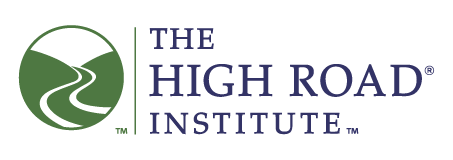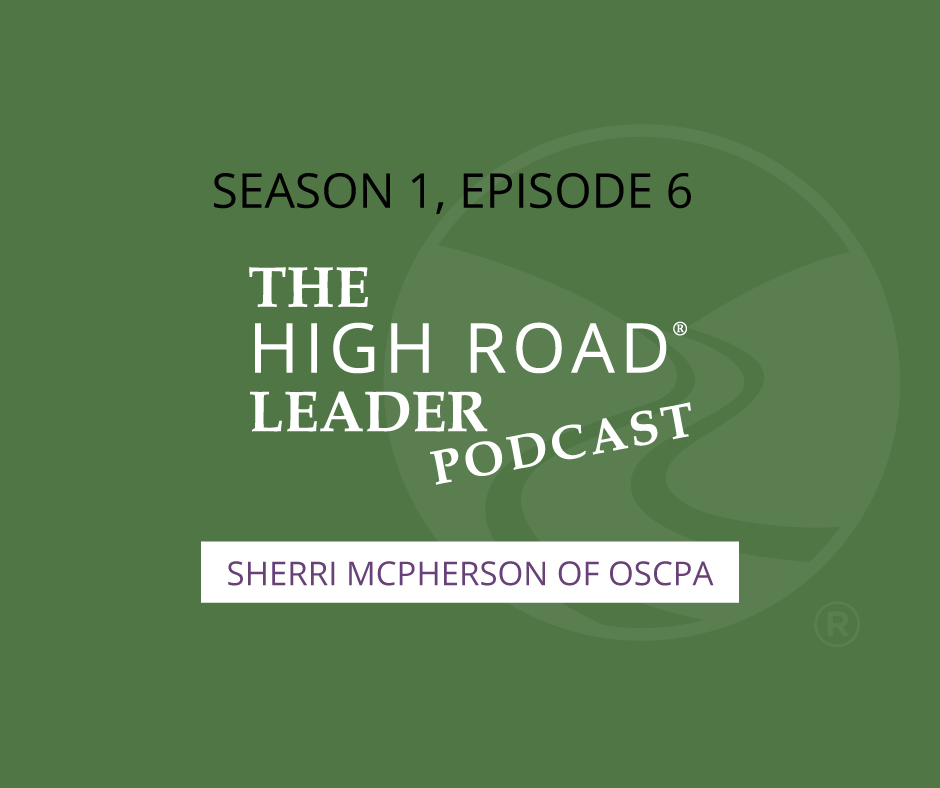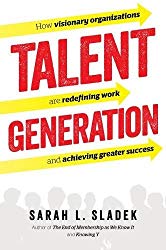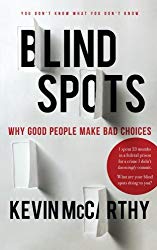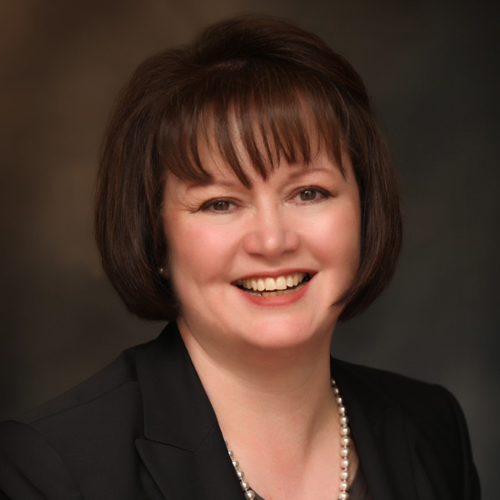
Sherri McPherson of OSCPA
Sherri McPherson, IOM, CAE, is President/CEO of the Oregon Society of Certified Public Accountants, a professional association of approximately 4,300 members, located in Beaverton, Oregon.
As chief of staff for the professional membership association, McPherson works with volunteers, professional staff and various stakeholders to represent, support, advocate and enthusiastically advance the Accounting profession. The Society’s membership represents five generations, comprised of CPAs, prospective CPAs, retired and life members, students, and beyond, in all phases of their diverse careers. OSCPA represents members located in Oregon, nationally and internationally as well as Oregon CPA firms.
She joined the Society in 1981 and has held the position of President/CEO since 2011. She held several prior positions with the Society, including Director, Continuing Professional Education, and Vice President, Professional Development from 1989 to 2011.
McPherson is a current member and former board member of Certified Public Accountants Society Executives Association (CPA/SEA) where she serves on several committees. She is also a Past President of Oregon Society of Association Management (OSAM), and a member of the American Society of Association Executives (ASAE). Sherri is a former member of the Forbes Nonprofit Council (2016-2019). In addition, McPherson has served in leadership and volunteer roles on a variety of national CPA Society projects and committees.
visit orcpa.org
How do you get the most out of the people on your team?
Are you aware of the ways an experienced leader can induce leadership from hundreds of volunteers?
You don’t need to feel defeated if you have trouble getting engagement from members of your team. I say this because my guest on this show will share her secrets for getting employees and volunteers to step up and take charge. Sherri McPherson gets people to take on leadership roles, with ease.
Sherri is the creative and inclusive President/CEO of the Oregon Society of Certified Public Accountants, a professional association, that is operated like a business.
Her caring, warm, and friendly approach to leading makes her memorable. Even though Sherri McPherson is the visible face of OSCPA (as it’s known) she loves working hard behind the scenes to ensure her team delivers both quality service and high value. Loyalty is one of her superpowers, having been with them since 1981. We became friends in 1988 and I’ve had the pleasure of watching Sherri grow into a Big L leader.
Some statistics explain why I define Sherri as a great leader. She is the ‘chief of everything’ in an association that has 4,259 members and offers services and education to the 7,000+ CPAs and 1,000 CPA firms of Oregon. Sherri and her team oversee 11 Project Committees, 14 Strategic and Board Standing Committees plus numerous subcommittees, and 7 chapters spread across the state. OSCPA manages nearly 400 membership events, live classes, and conferences plus over 100 in-house produced web programs annually. Sherri leads the Association’s intention of “fulfilling the needs of our members, in a complex world” using a 2-year strategic roadmap that has three overarching initiatives. All this work is accomplished with a staff of 15 people plus many dedicated volunteers! Color me impressed!
Ron: Let’s get to know more about an accomplished leader, Sherri McPherson. It is an honor to feature her on my show. Welcome to the High Road Leader podcast, Sherri.
Sherri: Thank you, Ron. It’s nice to be here.
Ron: We’ve known each other a long time and that’s why I can say with confidence that you are a great leader, because you’ve gone through so many iterations that we’ll get into later. So, I want to thank you for your service.
Sherri: Thank you very much. I appreciate that.
Question 1
Ron: What do you see as your primary role or responsibility?
Sherri: My primary responsibility is to advance and celebrate CPAs, support them in the needs they have. And CPAs are not just those folks that we normally think about as working in tax or audit, but CPAs work in all aspects of business from having their own practices to those in business and industry, government and education.
Ron: I met many of your members over the year, and it’s great to see when they’ve gone from either controller or a CFO role to consultant or CEO, or some of them have actually left and gone onto operational types of roles.
Sherri: Yes. Yes, that’s true.
Ron: And you also provide services to them as well?
Sherri: That’s correct, yes. Yes. CPAs are very diverse in how they support business and what they do for business.
Question 2 Dream Job
Ron: Think back to when you were a child. What was your dream job? What did you feel that you wanted to be?
Sherri: Well, you’re going to laugh a little bit, and I’m always intrigued by this question because some folks know absolutely what they want to be and others don’t necessarily. And I knew not necessarily what I wanted to be, but what I wanted to accomplish, and I wanted to make a difference, contribute positively. Also, growing up, my stepdad had a small two-seater airplane and also history was really … Understanding history was encouraged in our households, so I just naturally wanted to see things, understand things. We’ll laugh a little bit now, because when I was really young, flying was a little bit more golden age and you wouldn’t have babies on Red-Eyes the way we do now.
Sherri: But I wanted to be a flight attendant for a while, because it looked so glamorous and to go places and learn things and meet people and anyway. But I have to smile about that a little bit now. But you know, I still love to fly. I like to make a difference.
Ron: And I bet with your role at the society that you do a lot of flying back and forth.
Sherri: I’ve seen a good part of the country. When I think about that having been a goal of wanting to see things and understand our great country, I’ve been able to accomplish that. I’m very, very appreciative.
Question 3
Ron: Now, leadership. I believe that leadership is a journey. There’s really not a straight line. I’m going to ask you about how you became a leader or influencer. We met when you first got into your first role with the society and I believe that was your … Was that your first experience in leadership?
Sherri: It’s hard to believe there’s little pieces that we don’t know about each other, but I actually had moved up through several other positions in the Society, one of them being membership. We’d had some internal changes, and so I started working on conferences. What most people know is that CPAs have to have so many hours of educational or continuing professional education every two years for their licensing. So, I worked on conference development with a number of our members and committees for about five, six, seven years before you and I had started working together. And I think you and I may have worked on a few of those projects during that time. Then, I moved into the education director position.
Ron: And then from there, you stayed in that role for …
Sherri: 22 years. And there’s something about supporting members through education and understand that’s a core value, not just a requirement for CPAs. And so, there was something just quite wonderful about working with members over time, working with folks such as yourself, Ron, because we have a strong instructor base of folks. And of course, even today with web, we have a combination of classroom learning and web learning. But those experiences, particularly in those 22 years as Education Director, really they were a great, great, base for moving into the President-CEO position.
Ron: For those that don’t know, in your role as Education Director, that’s one of the key positions for the society because that is the main revenue engine after dues. And you have to keep that engine running; not only provide the hours, but also provide the revenue to support the goals of the society.
Sherri: That’s correct. Because you’re working with members, I meet many folks that support CPAs in the staff positions. There’s a society in each state and in the territories. We’re not all CPAs, but we basically learn the background. We’re working with folks in tax, audit, so you end up learning about a lot of these things, standards, regulatory baselines, that sort of thing.
Sherri: It’s terrific. You learn how to work with a lot of different people and on a given, you know, let’s just say a given week, you might be working with members that work in consulting and then we might be working with our Ed Foundation. Then, we might be working with our government team, and we might be working with our tax group. All of them have a different base of standards and regulatory background that they have to follow.
Ron: I can see, with this broad background that you had, why it was very natural for the society then to promote you to CEO. And that was eight years ago?
Sherri: Yes, yes. Well, and I love to learn, too. I’m a lifelong learner, so those things help support very well, too. But yeah, you learn to be flexible and nimble at the same … Well, if you aren’t already. And the other thing too is you realize you have to have systems and processes in place, because you have to make sure that for the continuity, of your business, if you will, that there’s a consistency. People know what to expect. There’s accuracy, those things.
Sherri: But at the same time, you’re also a rainmaker. You know, you have an eye on what’s happening in the profession and regulatory, because members are going to need the training in those areas, too. So, you’re on the pulse of the profession at the same time that you’re working in process. So, it’s inspiring and, you know, my team, they’re great about working through that same perspective and working through that approach as well.
Question 4
Ron: What does the Oregon Society of CPAs do best?
Sherri: Well, was thinking about if you might ask me a question like that. It’s like we do a lot of things really, really well. I would say that a little bit of that is from the eye of the beholder, from the member perspective. But I think that … Not even I think. I know that what we do is we look out for our members and that might be from an educational perspective at one point. It may be from the standpoint of in the regulatory arena.
Sherri: One of the things that we also do is we provide information to the legislature every year from a helpful standpoint. In that mode, it’s giving an update on federal changes, so the legislature is aware of how federal changes have occurred. And that way, they can apply them towards Oregon changes. So, we do a lot of things well. We have an educational foundation that, through the generosity of our members, we typically award well over $100,000 in scholarships to college students each year. Big need for that.
Sherri: But I think the one thing that really, through all of those various things we do, is it’s our focus on quality and consistency from the standpoint of process to train our staff and our members on certain things. When people understand what they need to do and why they need to do it, then that’s where inspiration comes forth, where new ideas come about. We can easily implement them because we understand how to handle things, such as building conferences. We have such a skill set in that that when a member steps forward, there’s a need, we can understand that that member need is there for others, too, and to be able to fulfill.
Sherri: I think the other thing, too, and I’m just talking about a lot of … We do a lot of things. We’re a small staff, but we have a really deep clothesline, if you will. Some of the other things, too, is we just look out for the best interests of our members, and we just try to make sure that our members shine to the public.
Ron: That’s a great phrase. If you don’t have that as your tagline on all your social media, that should be on it.
Sherri: Thank you.
Question 5
Ron: How do you define good leadership based on your varied experiences?
Sherri: I think a good leader, in my opinion, helps people to understand what to do and why they do things. And then, if you will, let’s talk about processes, SOPs. And then once that’s in place, then, if you will, be in there to support but not standing over everyone’s shoulder all day long and stepping back and letting people’s own skillsets and their own personality shine through. Because if people understand what they’re doing and why they’re doing it, then I believe that’s where innovation comes in. That’s where, good ideas blossom.
Sherri: But the other thing, too, is just being able to have moments for those conversations. And over time, here, we’ve looked at things and we’ve said, “Okay, you know, that’s a great idea.” And then as we’ve talked through things, we’ve realized that we’ve come up with even better ideas and many times from those base ideas. So, I think really allowing people to be able to use their skillsets and allow them to use their intuition and experiences. Those things are really important.
Ron: Very nice.
Question 6
Ron: Sherri. One of my goals of this podcast is to share ideas on how to develop more capable leaders. Your story is unique, because I see you developing leaders in three ways. The first way is developing the leaders in your organization and on your team. The second way involves the CPAs to recruit them to be committee members, to serve on the board of directors and for all the various volunteer leader positions that your society has. The third way is the profession itself. I know that you work closely with 54 CPA societies, and the AICPA, to talk about the future of the profession. And one area of concern is leadership. Therefore, based on all this effort, what works for you in developing more capable leaders?
Sherri: Having conversations with people, I think, makes a big difference. You know, being able to visit about what we’re trying to accomplish, you know, inquiring and being sensitive and aware of people’s needs. Those things help. I mean, sometimes we’ll, you know, I’ll be having a conversation with a member and they’ll be asking about something. We invite them into a committee meeting in which we try not to overtax our members but make them effective. And, in many cases, it’s an example where people can step in and people rise up. That does come from having effective teams. There’s no doubt about that.
Sherri: We do a lot of things. We have a leadership program for newer professionals. We’ve had some experienced professional step into that, too. That’s our LEAP program. And there’s just a lot of opportunities in our organization for folks to grow. We have advanced folks into recommending them for National Leadership Academy. But at the same time, here at home, we also work through a program, our annual leadership conference, Strategic Leadership Forum, where we bring folks together. And frankly, we really don’t worry about whether people have years of experience or whether they’re newer professionals, because you know, it doesn’t really take that much time and time goes so quickly.
Sherri: People rise up in various ways and different people bring different leadership abilities to bear in groups and that’s the nice thing, because you can take advantage of that from the standpoint of what you’re trying to accomplish. But on the other side, it’s a chance for everyone to contribute with their own capabilities and skillsets and desires.
Ron: You mentioned you have your own internal leadership program for CPAs. Was there a specific skill or a thought that you wanted to make sure that that carried, since this is a relatively new program for you?
Sherri: Well, we’re moved into our third year. We basically reach out to our members, asking them to consider recognizing their rising stars. And so, they can basically recommend to their staff to participate in that project. Basically, a two-day program. One of the things we’re working on right now is advancing that opportunity for folks to be able to stay together. Kind of an alumni perspective stickiness there, if you will. The other thing folks can jump into that themselves, too, without needing to be referred from, for example, a managing partner or their CEO, for example.
Sherri: That’s one of the things that we work on a lot. I guess I would say it’s probably the brush that touches so much of what we do, is developing more capable leaders. And we’ll have folks that will step forward and they’ll say, “I really don’t know much about this. I’m not sure.” And in many cases, what we’ll do is, for example, reviewing various bills for the society, for the legislature, because we’ll be looking at things. And so, we basically have two co-chairs that are hip to hip, and they’ll provide feedback to the newer professionals and it gives people a chance to learn.
Ron: Nice. That is a good way to develop leaders.
Question 7
Ron: Is there a leadership book that you would recommend?
Sherri: I’m actually reading two books that are pretty much … One in particular is a little bit more tied to the association arena, but I’m reading Talent Generation, How Visionary Organizations Are Redefining Work And Achieving Greater Success. That’s by author Sarah Sladek, and I’ll spell the last name. S-L-A-D-E-K. She’s great. I’ve had a opportunity to hear her speak a few times, and I really love that the message that she’s advancing through that book. A lot of it’s very focused at millennials. And of course, we know, you know, we have Gen Z now in place. Our organization, we’re fortunate. And it’s very exciting, because we work with five generations of members, and so that’s a little atypical of many organizations.
Ron: Yes it is. Five generations.
Sherri: Yes. And so, we have members that have, you know, been in place for, let’s say, a month all the way up to folks that have been members for near 65 years. So, it’s very, you know the society and the accounting profession is really … It’s a home to folks for their profession in many ways.
Sherri: The other book I’m reading is Blind Spots, Why Good People Make Bad Choices. This is someone that I had opportunity to hear recently, Kevin McCarthy. He spoke at our leadership conference and that was very inspiring as well, when you think about sometimes you’re not seeing what’s so obvious in front of you. And sometimes, not necessarily stepping away from things that you should step away from … We always think about it, you know, attaching to things that are new or, you know, changing trends, that sort of thing … but also realizing sometimes we have to step back.
Ron: Nice. Those are great recommendations.
Sherri: Thank you.
Question 8
Ron: Sherri, what does the term high road mean to you?
Sherri: High road, to me it’s taking that step to travel at a level that is above. And when I say that, I don’t mean to say that tongue in cheek about high, but it’s that peace of knowing that sometimes you have to do things that may not be popular. We’ve heard kind of high road is a take the high road, as a phrase growing up. But it really I think about how that applies to the accounting profession, Ron and with what’s required and expected of CPAs is that they have independence, that they have integrity.
Sherri: I’ll tell you, it’s an amazing thing to work for people that get up every day thinking that integrity is very, very important. But not even that. The members may not even think about it so much, because they just live it, and it’s an amazing place to be. And so, when you apply integrity and independence to a phrase like high road, you really think about what’s important in doing the right thing, being courageous and speaking up, sometimes saying the things and telling others what they don’t want to hear. It’s easy to tell them what they do want to hear. It’s really leading in a way that may not always be popular, but it’s the right way to live and lead.
Sherri: There’s a poem that I think is really quite nice or a quote. Do you mind if I share?
Ron: Please do.
Sherri: It’s “A Happy Life” and it goes, “To live with purpose, to say the courageous thing, to celebrate this simple gift, to follow your dreams, that is a happy life.” That’s by Wayland Henry. And in many ways, I think, your question about high road, I mean, that’s the high road. You’re living with purpose. You’re saying things when maybe nobody else is saying something. You’re stepping out. You take these moments to be happy and joyous, and that’s one thing that we need to be doing, too, when we get up every day.
Ron: Well put. Thanks for sharing that.
Question 9
Ron: Where can people in the audience learn more about you and the society itself?
Sherri: You could go to LinkedIn. I have a profile out there. I think our team’s done an amazing job with our website. It’s very deep. There are some pieces out there that are helpful for the public as well, and that’s at orcpa.org. You’ll see our name is Oregon Society of CPAs.
Question 10 – The Ask
Ron: In gratitude for taking this opportunity to be with me, is there something that you would like to tell the audience in terms of maybe a message or an ask or even a commercial?
Sherri: Oh, that’s a tough one, because I’m always advancing CPA.
I would just tell you that in my years of working with the society, one of the things that I’m most humbled about really falls to that point of how deeply and how much our members care about what they do and the people they work for, whether that’s an industry or whether that’s clients.
Sherri: From the CPA firms side, I know, as we’ve had some members look towards retirement as they move out of their roles as having been trusted advisors, they’re really concerned about what happens to their clients and who’s going to take care of them. And I just recommend if you need assistance with business or individually, CPA is the right person to turn to.
Ron: The CPA does stand for high quality.
Sherri: Yes, yes. But they also are by code of conduct and also the standards and also the regulatory aspects of what they have to follow as well. They really do a great job for business and for people.
Ron: Thank you for that.
Dream Job, part 2
Ron: I believe that as a child, we knew in our mind what we wanted to either be or the experience that we had. I think when you look at yours, you mentioned a pilot, be in the airplane and also be of service. And from what I know about you and your experiences and your work with the society, you actually achieve that with the, for instance, the educational role. You didn’t fly the 747 jet or at the high level, but you were at a lower level and helped run that.
Ron: But it was more than just the continuing education. It was at conferences. You also were in charge of committees of volunteers. So, you were being of service and you were flying the plane. Now, as the CEO and president, the jet is much bigger. The altitude is much higher, and you’re still flying the plane and making sure that everybody aboard the plane is getting the service that you want them to have. Does that sound like it’s a fit?
Sherri: It is though, I’ve reflected upon it many times over the years. As a young person, I was involved, and we can think about that in the modern term as I volunteered I was in Girl Scouts, started volunteering with 4-H, very involved with their school activities. I’d belonged to a fraternal organization Theta Rho was the girls organization of Odd Fellows, and I learned how to run a meeting, be in various roles such as treasurer, secretary, president and we had things we did in the community.
Sherri: As I moved through junior high and high school, I was very involved in civic activities very involved in student government and those types of things. 4-H, again, and, you know, you realize that you’ve got these core aspects of yourself where you compete, but also you give back and you learn how to lead and you learn how to, if you will, step back when you have a difference of opinion and you learn how to move through democracy and those things. So, it was just such a natural when I came to the society, because all of those things were the things we did here, that I loved so much as a young person. But they were also great because you understand what people are doing when they’re volunteering when you have that background yourself.
Sherri: I really encourage people to step out of themselves and volunteer and for your children and grandchildren to get them involved in doing things. It helps us in so many ways. This is my grownup job. I’m doing those I believe that as a kid.
Close the Interview
Ron: Thank you very much for making a difference, Sherri. You are a person of influence, and the audience can now understand how you are grooming leaders in the CPA profession and, of course, your own organization. I’m grateful for the time you spent with me and the insights into who you are and the valuable work that the Oregon Society of CPAs does not only for its members, but society in general. So, again, I appreciate that and I appreciate you.
Sherri: Thank you, Ron. Thanks so much for having me, you know, on Your High Road Institute podcast today. I really appreciate it, and it’s just been a joy working with you all these years. Thank you for everything you’ve done for us, too.
Ron: You are welcome.
Key Lessons
I hope that you gained at least three fresh ideas that you can implement immediately. I did. From my conversation with CEO Sherri McPherson, these are 4 leadership tips that I use.
-
- A good leader provides clarity of the goals, issues, obstacles, and anticipated outcomes because clarity sparks innovation and great service.
“When people understand what they need to do and why they need to do it, then that’s where inspiration comes forth, where new ideas come about. We can easily implement them because we understand how to handle things.” –Sherri McPherson
-
- A leader always strives to increase understanding because…
“I think a good leader, in my opinion, helps people to understand what to do and why they do. If people understand what they’re doing and why they’re doing it, then I believe that’s where innovation comes in. That’s where good ideas blossom. So, I think really allowing people to be able to use their skillsets and allow them to use their intuition and experiences… Those things are really important.” –Sherri McPherson
-
- All emerging leaders do their best when they have impact. Sherri accomplishes this by putting them on and utilizing good teams.
“We invite them into a committee meeting in which we try not to overtax our members but make them effective. And, in many cases, it’s an example where people can step in and people rise up. That does come from having effective teams. There’s no doubt about that.” –Sherri McPherson
- A High Road leader capitalizes on their team’s talents. Do you call the impressive ongoing responsibilities that I mentioned when introducing Sherri? Here is another that takes my breath away: OSCPA offers 9,000 web-based programs for CPAs! I love Sherri’s way of describing her passionate, dedicated, and hardworking team.
“We’re a small staff, but we have a really deep clothesline.” –Sherri McPherson
